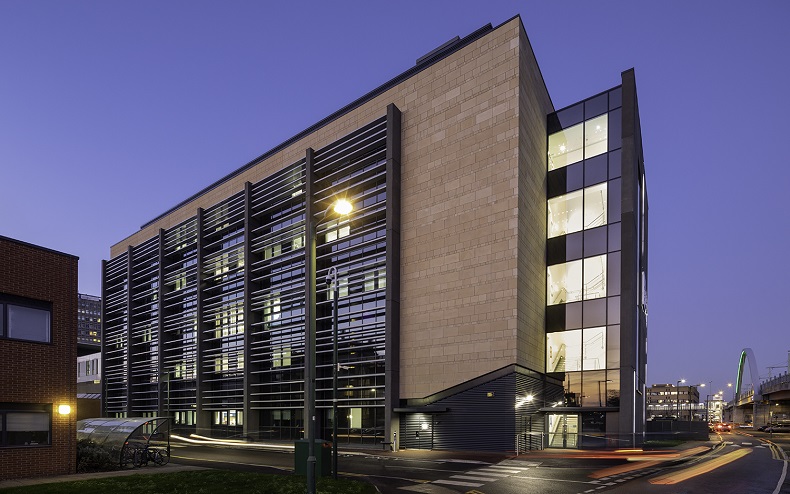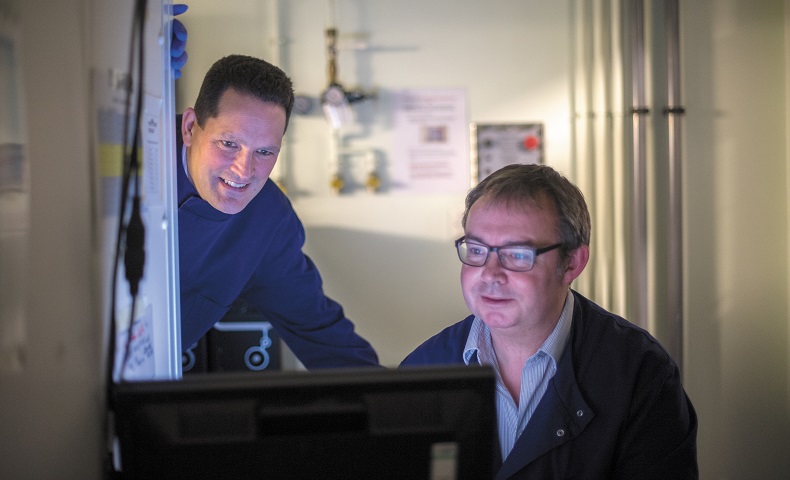 Uncovering our Biodiscovery Institute
Uncovering our Biodiscovery Institute
More than 800 talented minds, all with the shared aim of helping people lead healthy lives by delivering new ways to diagnose, treat and cure diseases – including cancer – can now be found under one roof here in Nottingham.
This is thanks to the construction of the University of Nottingham’s new £100m Biodiscovery Institute, affectionately known as the ‘BDI’, which has opened this year. The institute expands, replaces and rebrands the original Centre for Biomolecular Sciences which opened in 2004 and itself was seen as ahead of its time in identifying the great value of cross-disciplinary research.
The BDI brings together disciplines from five different schools across the University, as well as now housing the vast majority of our cancer research – including staff from the Nottingham Breast Cancer Research Centre. It is thought to be one of the most well-equipped academic institutes in the world, which will be transformative for the cancer research you support.
Professor Chris Denning is the person behind the vision and gives us an insight into how this will be game-changing for the diagnosis and treatment of cancer and other diseases.

I took over the Directorship in late 2018 and I always felt we could make more of what we were doing. We now have around 850-900 staff all under one roof, which makes the BDI one of the largest organisations of its kind in the country. I wanted to make sure we were in a position to punch at our weight and celebrate the fantastic research which spans an enormous amount of range.

Any product you think about, whether a drug you inject into somebody or whatever it might be, it’s not just the biology behind the drug it’s all the other aspects; how do you get the information to the clinicians, how do you get the syringe to inject it in, how do you know the chemical properties of it and so on.

Being under the same roof creates a better way to interact and gives you an opportunity to go and chat, that’s where many of our strengths have been. We can pull together those different disciplines; it gives you the opportunity to provide that cross-fertilisation of ideas and insight.
It also means we can create our own research culture, which encompasses both a top-down and ground-up approach. We’re already seeing much better engagement from PhD and postdoctoral students. Fundamentally this means we get better research done.

One example here in the Biodiscovery Institute is the work of Lindy Durrant, which is incredibly exciting. She and her colleagues have been creating vaccines which trigger two types of response in the immune system; one which is antibody based and the other is something called ‘T cells’.
In trying to create a vaccine for COVID-19 she has used this dual approach to attack two different proteins in the virus, one on the outside, one on the inside. The one on the outside is thought to stimulate the antibody response and the one on the inside the killer T cells. This is the same technology being used to treat melanoma patients too and the trials have been absolutely outstanding – many patients have no trace of cancer five years on.

One of things I have found by taking on the Directorship is how it has given me a real sense of purpose and direction. It really made me want to push things forward and change the research culture. So I gain an enormous sense of pride, it’s rewarding seeing people develop and it gives me a sense of ambition. I want to do better for our community and make myself a better person. This is the start of a big journey.
As we continue to make new inroads into diagnosing and treating breast cancer, brain tumours and much more, the BDI now provides the best possible environment for hundreds of dedicated staff. The research you are supporting could not be in better hands.